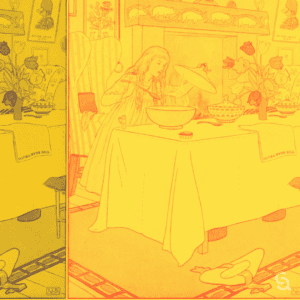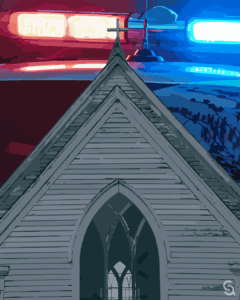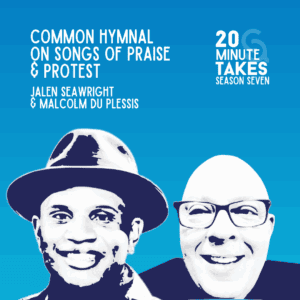 In April, my husband and I accepted an offer for our home of 25 years. Over the next 60 days, we spent almost every free hour going through what we’d collected over that quarter century. Every book, photo, piece of clothing and furniture in that house passed through our hands, and we made hundreds of decisions a day—what to keep, what to give away, what to photograph before throwing away…so many things! We sold off or gave away half of our possessions, put the rest in storage, threw a few suitcases in the car, and drove away.
In April, my husband and I accepted an offer for our home of 25 years. Over the next 60 days, we spent almost every free hour going through what we’d collected over that quarter century. Every book, photo, piece of clothing and furniture in that house passed through our hands, and we made hundreds of decisions a day—what to keep, what to give away, what to photograph before throwing away…so many things! We sold off or gave away half of our possessions, put the rest in storage, threw a few suitcases in the car, and drove away.
We had raised three boys into adulthood in that two-bedroom carriage house, welcomed countless neighbors, housed a handful of transitional folks, hosted hundreds of dinner parties…It functioned at various times as a church, a schoolhouse, a hotel, and a hospice. We fought for our marriage in that house, and we fought for our children. We were held by our faith community and supported by our neighbors in that home. We loved our house and our neighborhood and our life there. And then, thanking God and our house for all the life it had contained and provided for us, we said our goodbyes.
Why did we walk away from it all? All I can say is, it was time. We are both ready for a new adventure, and that adventure requires freedom of movement, spiritual agility, the ability to pivot to whatever God has in store for us. While the move was physically exhausting, we find ourselves surprisingly excited, exhilarated even. We feel free, light-footed, curious about but unafraid of the next season.
Speaking for myself, I suspect that this has something to do with the work I’ve been doing on letting go for the past 10 years—letting go of my need to extract certain results from life and others, learning to release my plans while still daring to hope for good outcomes. I didn’t move towards that work happily or easily. I just came to realize that it was necessary if I wanted my relationships, my sanity, and my faith not only to survive but also to thrive.
Dr. Gerald May, in his book Addiction and Grace, has given me language for this letting go and helped me better understand what is often referred to, in both psychological and spiritual contexts, as “detachment”:
For centuries, people have distorted its meaning, mistakenly assuming that detachment devalues desire and denies the potential goodness of the things and people to which one can become attached. Thus, detachment has come to be associated with coldness, austerity, and lack of passion. This is simply not true. An authentic spiritual understanding of detachment devalues neither desire nor the objects of desire. Instead, it “aims at correcting one’s own anxious grasping in order to free oneself for committed relationship to God.”
I think that locating and exercising my detachment muscle over the last decade has allowed me to take this latest step, letting go of my house and embracing the unknown in my 60s.
We don’t have a new home to go to, not yet anyway. But between our good friends/family who want us to visit, and the pet-sitting community we recently joined, we’ve patched together housing for well into the coming year.
As we’ve moved around over the past few months, we’ve received many gifts that are only possible to receive with empty hands. We’ve had more time with our adult children and granddaughter. We’ve had the freedom to support friends and family who are in hard seasons of loss. And we’ve enjoyed the opportunity to “try on” other lives.
As we settle into a new pet-sitting gig, we get the chance, at some level, to live the life of the home’s owners. Like Goldilocks, we prepare our meals in their kitchen and sleep in their bed. We drink coffee from their mugs and read in their armchairs. We look out their windows and bring in their mail. In the most basic, tactile, and repetitive ways, we inhabit their life for a week or more.
Most are strangers to us, yet by the end of our stay, we feel that we know these people in a strangely intimate way. We see the books they read, the family photos they display. We learn about their aesthetic, what comforts or inspires them, what they value. Icons, cookbooks, African masks, blues albums, crossword puzzles, craft projects, a wine collection, children’s drawings, potted plants—every artifact reveals something about its owners. The more their surroundings reveal, the more curiosity I experience about the people who live there. When we move on, sometimes without ever meeting them, I feel a deep gratitude for them, thankful not just for the temporary home they provided to us but also the glimpse into their unique lives.
This experience underscores for me the power of proximity to connect people, even strangers, to increase empathy and understanding. Where I may once have driven by this home and felt judgment (Why don’t they clean up their yard?) or jealousy (Those rich people have it made!), I now have a sense of connection to them—and not just because I’ve now fallen in love with their Dachshund or Golden Retriever!
Ten years ago, after spending five days with Catholics at a residential course on Theology of the Body (as the only Protestant in a group of 100), I understood—and appreciated—Catholicism in a way I never could have anticipated. By crawling into a Catholic ‘container’ and sharing space, meals, conversation, study, and a roaring bonfire with my new friends, I was amazed at how much ignorance and judgment I shed—ignorance and judgment I didn’t even know I had in me to shed! What a gift.
Oriented to Love, the dialogue program I have the joy of directing here at Christians for Social Action, provides these kinds of powerful opportunities for proximity, and it never fails to delight me. It’s just a whole lot harder to hate, dismiss, or stereotype someone with whom you’ve just engaged in an extended experience of mutual vulnerability.
A Cherokee proverb warns, “Don’t judge a man until you have walked a mile in his shoes.” Elvis Presley wrote a whole song about that idea, released in 1970:
If I could be you, if you could be me
For just one hour
If we could find a way
To get inside each other’s mind,
If you could see you through my eyes
Instead of your ego
I believe you’d be,
Surprised to see
That you’ve been blind…
Walk a mile in my shoes
Just walk a mile in my shoes
And before you abuse, criticize and accuse
Just walk a mile in my shoes
May we as a church, as Christ’s very own Body, choose sight over blindness, love over judgment. May we look at those we are tempted to “other” as opportunities to practice letting go of our preconceived ideas and instead seeing through their eyes. May we model the kind of generosity towards, curiosity about, and delight in others that Jesus always showed during his own nomadic life on earth.
 Kristyn Komarnicki is the director of dialogue and convening for Christians for Social Action and the program director of CSA’s Oriented to Love dialogue program.
Kristyn Komarnicki is the director of dialogue and convening for Christians for Social Action and the program director of CSA’s Oriented to Love dialogue program.


